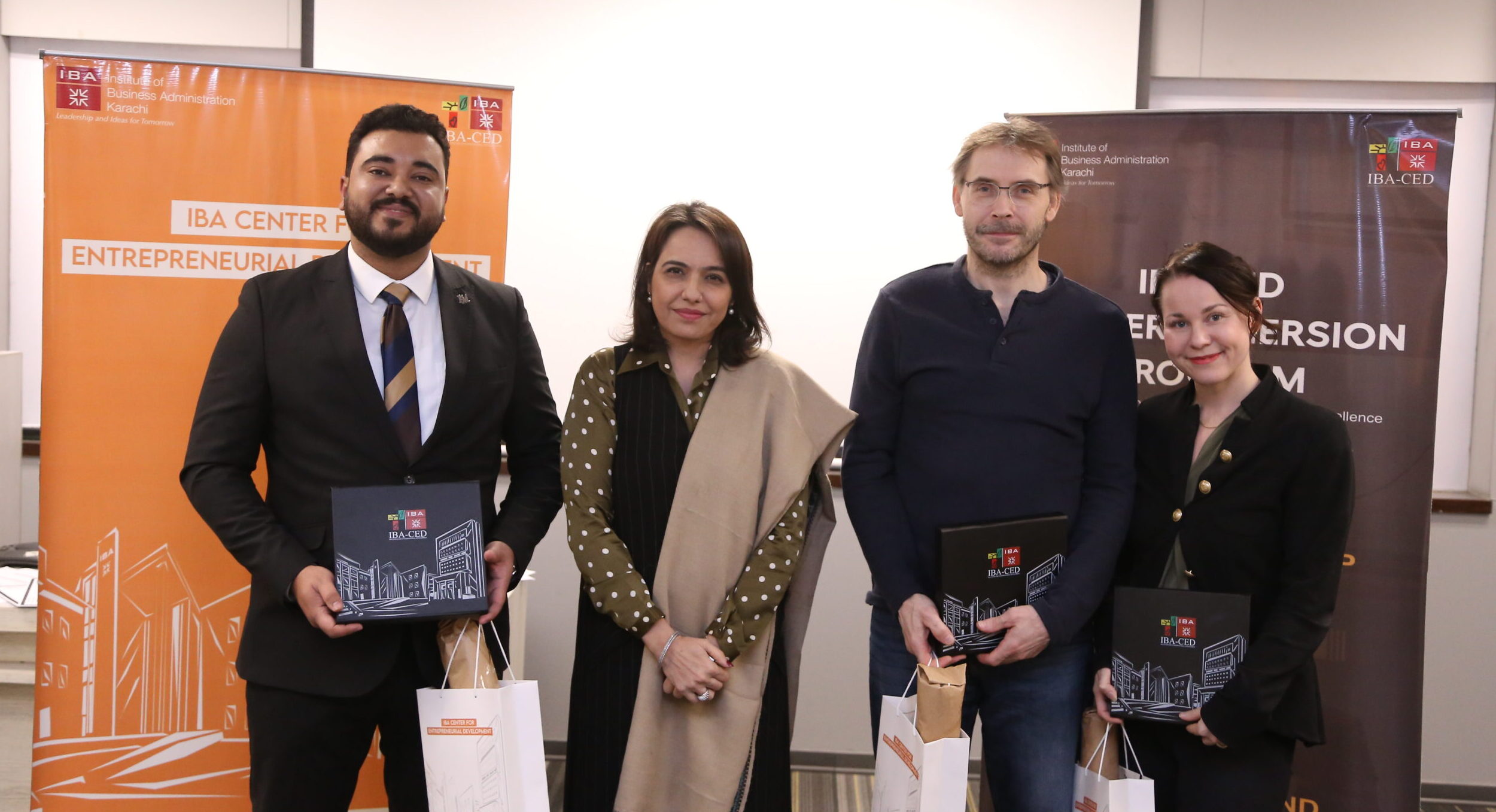Karachi, February 16, 2020: The State Bank of Pakistan (SBP) hosted a seminar on “Managing Crises in Emerging Markets” in collaboration with the Pakistan Business Council (PBC) in Karachi yesterday. The seminar was attended by policy makers, financial sector specialists, researchers, government officials, heads of commercial banks, eminent business persons, academics, and the media.
In his welcoming remarks, the Governor SBP, Dr. Reza Baqir, stated that the objective of holding the seminar was two-fold. First, to demonstrate that, in addition to its mandate of formulating monetary, exchange rate and financial stability policies, SBP endeavors to facilitate constructive debate on economic issues and is open to diverse points of view. Second, to highlight that Pakistan is not unique and there are many other emerging economies that have also faced economic crises and undergone difficult adjustments.
Mr. Athanasios Arvanitis, Deputy Director of the International Monetary Fund, delivered the keynote speech. His speech was followed by a panel discussion in which Mr. Ehsan Malik, CEO of PBC, Mr. Sakib Sherani, CEO of Macro Economic Insights and Mr. Khurram Husain, a renowned journalist at Dawn, participated. The seminar ended with a question and answer session with the audience.
In his address, Mr. Arvanitis highlighted some of the main similarities of crises across emerging markets, notably the role typically played by elevated levels of debt, high public and external deficits, inflexible exchange rates, lack of competitiveness, low saving and investment, and maturity and currency mismatches.
Despite these similarities, he emphasized that there was no one-size-fits-all model for managing crises. Instead, the IMF focuses on different dimensions while assisting a country in developing a homegrown stabilization program. The approach emphasizes the need to diagnose the roots of a country’s crisis, trends and developments in the balance sheets of various economic agents and their interconnectedness, and country-specific dynamics that affect the political economy of reforms.
In terms of designing stabilization programs, Mr. Arvanitis stressed the importance of country ownership and measures to provide support for vulnerable segments of the population. He also drew parallels for Pakistan from the experiences of managing crises in other emerging countries.
Referring to the IMF program with Pakistan, Mr. Arvanitis remarked that it is important for the government to focus on meeting the Sustainable Development Goals (SDGs) under the UN’s 2030 Agenda. He noted that ongoing fiscal reforms will not only put Pakistan’s public debt path on a sustainable footing but also build the foundation for providing crucial funding to meet these targets.
In the panel discussion, Mr. Ehsan Malik presented the business community’s perspective on prevailing economic conditions and policies in Pakistan. While complimenting SBP’s adoption of a market-based exchange rate mechanism and the improving security situation in Pakistan, he highlighted the skewed tax burden on the manufacturing sector and the need to put in place a national tariff policy that prioritizes industrial promotion in the country instead of revenue generation. Mr. Malik also highlighted the business community’s concerns about the level of interest rates in the country.
Mr. Sakib Sherani highlighted various factors that he felt explained why Pakistan’s economic growth has historically not been steered towards a balanced trajectory despite the implementation of multiple IMF programs.
In particular, he drew attention to the under-appreciation of initial conditions and negative feedback loops while designing these programs. He agreed with the idea of adopting heterodox policies for managing crises and suggested that the efficacy of IMF programs could be improved if they were longer, more back-loaded, and more heavily focused on structural conditionality rather than specific quantitative targets.
Mr. Khurram Husain also shed light on previous IMF programs in Pakistan and argued that none of them were able to put the economy on a sustainable growth trajectory. Due to the availability of capital and financial flows driven by exogenous factors very soon after the start of those programs, he felt that the focus on addressing structural vulnerabilities always remained inadequate.
In particular, Pakistan’s tax base has remained narrow and exports have failed to expand and diversify. Mr. Husain felt that this has weakened the relationship between economic stabilization and growth, resulting in a recurrence of boom and bust cycles in Pakistan, whose brunt has fallen time and again on the poor.
The seminar closed with an interactive session with the audience, featuring questions related mainly on to how to transition from stabilization to growth by boosting Pakistan’s savings, increasing exports, boosting government revenues, developing agriculture and the financial system, improving the business environment, and harnessing financial inflows.


























































































































































































































































































